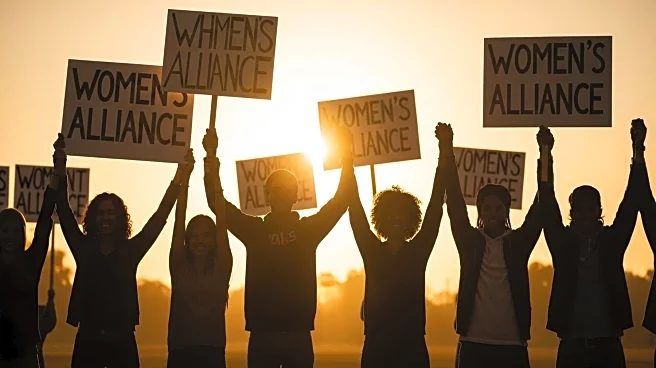What's Happening?
In Indonesia, hundreds of women armed with brooms have joined ongoing protests against police abuses and government spending. The demonstrations, which have spread across major cities, were initially sparked by the death of a young motorcycle taxi driver, Affan Kurniawan, allegedly due to police violence. The protests have intensified, with participants demanding reforms and accountability. President Prabowo Subianto, who was seen in China despite initially canceling his trip, has announced plans to reduce perks for lawmakers in response to public outcry.
Why It's Important?
The protests in Indonesia highlight significant public dissatisfaction with government policies and police conduct. The involvement of the Indonesian Women's Alliance, a coalition of 90 organizations, underscores the movement's broad support and the critical role of women in advocating for change. The demonstrations could lead to policy shifts and increased scrutiny of government actions, impacting Indonesia's political landscape and potentially influencing regional stability.
What's Next?
As protests continue, the Indonesian government may face increased pressure to address the demonstrators' demands. International organizations, including the United Nations, have called for investigations into human rights violations, which could lead to further diplomatic scrutiny. The government's response will be crucial in determining the protests' trajectory and the potential for reform.
Beyond the Headlines
The protests reflect deeper societal issues, including economic inequality and limited political dialogue. The movement's emphasis on women's participation and symbolic actions, such as the use of brooms, highlights cultural dimensions of resistance and the desire for systemic change.










